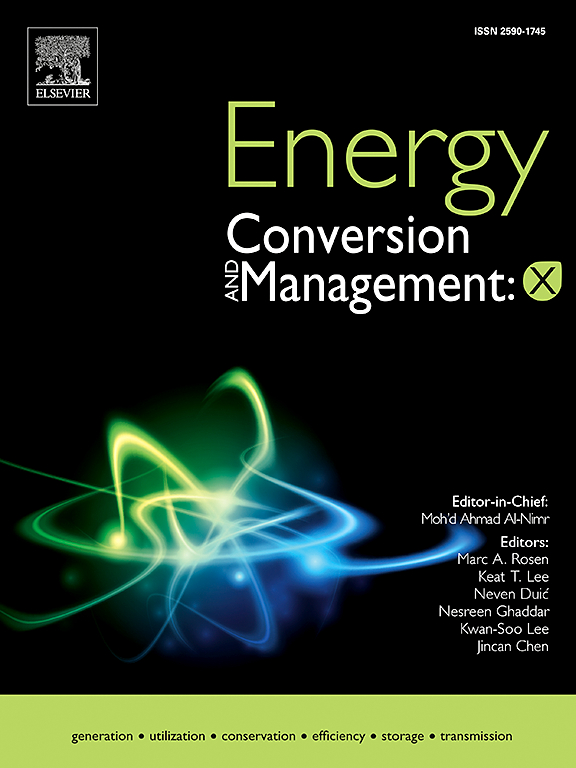EMS for hydrogen fuel cell electric vehicles based on improved fuzzy control
IF 7.1
Q1 ENERGY & FUELS
引用次数: 0
Abstract
Hydrogen fuel cell electric vehicles (HFCEVs) ensure both environmental cleanliness and an extended driving range. Control strategies based on optimization often achieve superior theoretical performance; however, they impose a high computational burden on entry-level passenger cars, where MCU resources are already prioritized for safety-critical functions like autonomous driving and AEB. Meanwhile, rule-based ones exhibit compromised adaptability and economic performance. Thus, this article focuses on improving the rule-based energy management strategies (EMSs) for the complex hybrid energy storage system (HESS) in the HFCEV. First, the powertrain model is developed, highlighting the selection and matching of key components, including the electric motor, hydrogen fuel cell and Li-ion battery. Subsequently, a Mamdani-type fuzzy control-based EMS improved via Dung Beetle Optimizer (DBO) is proposed. Fuzzy control serves as the framework to enhance efficiency performance, while DBO iteratively optimizes the parameters of membership functions. Finally, the proposed EMS is compared with multi-point control, power-tracking control, general fuzzy control and pattern-recognition-based fuzzy control. The results demonstrate that the proposed EMS significantly enhances economic performance under driving conditions featuring high-speed intervals and dynamic acceleration transitions.
基于改进模糊控制的氢燃料电池电动汽车EMS
氢燃料电池电动汽车(HFCEVs)既能保证环境清洁,又能延长行驶里程。基于优化的控制策略往往具有较好的理论性能;然而,它们给入门级乘用车带来了很高的计算负担,而在入门级乘用车中,MCU资源已经优先用于自动驾驶和AEB等安全关键功能。与此同时,以规则为基础的企业表现出较差的适应性和经济绩效。因此,本文重点研究了HFCEV复杂混合储能系统(HESS)基于规则的能量管理策略的改进。首先,建立动力总成模型,重点进行电机、氢燃料电池、锂离子电池等关键部件的选择与匹配。在此基础上,提出了一种利用屎壳虫优化器(DBO)改进的mamdani型模糊控制EMS。以模糊控制为框架提高效率性能,DBO迭代优化隶属函数参数。最后,将该方法与多点控制、功率跟踪控制、一般模糊控制和基于模式识别的模糊控制进行了比较。结果表明,在高速区间和动态加速转换工况下,该系统显著提高了车辆的经济性。
本文章由计算机程序翻译,如有差异,请以英文原文为准。
求助全文
约1分钟内获得全文
求助全文
来源期刊

Energy Conversion and Management-X
Multiple-
CiteScore
8.80
自引率
3.20%
发文量
180
审稿时长
58 days
期刊介绍:
Energy Conversion and Management: X is the open access extension of the reputable journal Energy Conversion and Management, serving as a platform for interdisciplinary research on a wide array of critical energy subjects. The journal is dedicated to publishing original contributions and in-depth technical review articles that present groundbreaking research on topics spanning energy generation, utilization, conversion, storage, transmission, conservation, management, and sustainability.
The scope of Energy Conversion and Management: X encompasses various forms of energy, including mechanical, thermal, nuclear, chemical, electromagnetic, magnetic, and electric energy. It addresses all known energy resources, highlighting both conventional sources like fossil fuels and nuclear power, as well as renewable resources such as solar, biomass, hydro, wind, geothermal, and ocean energy.
 求助内容:
求助内容: 应助结果提醒方式:
应助结果提醒方式:


